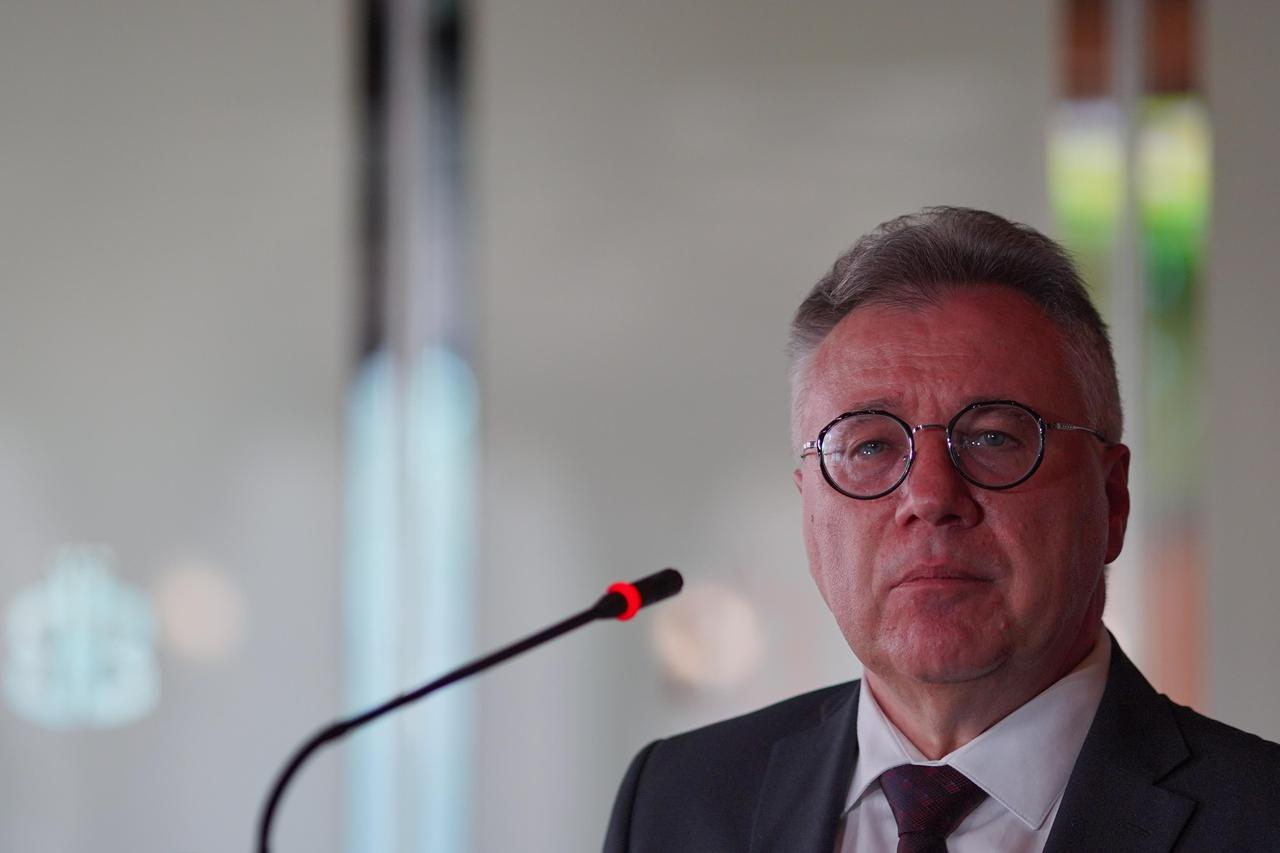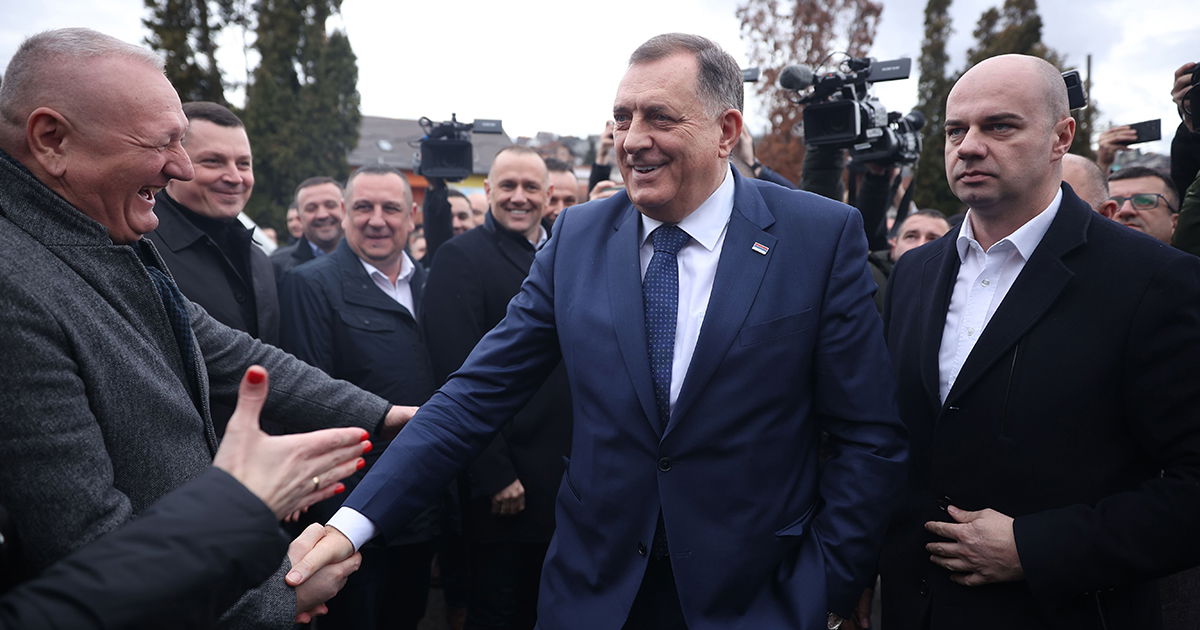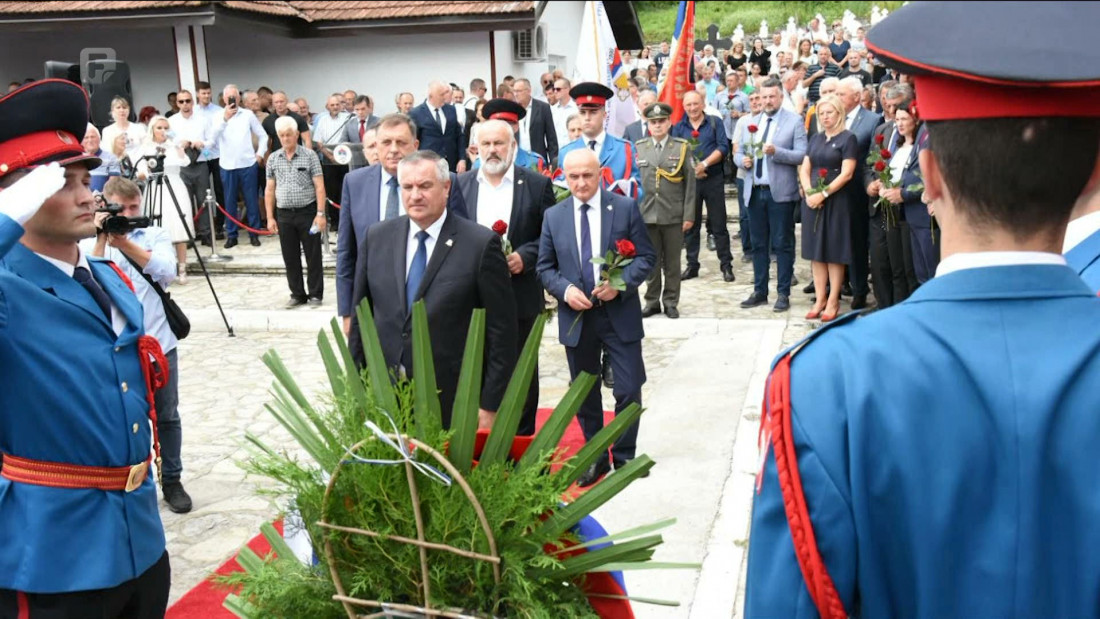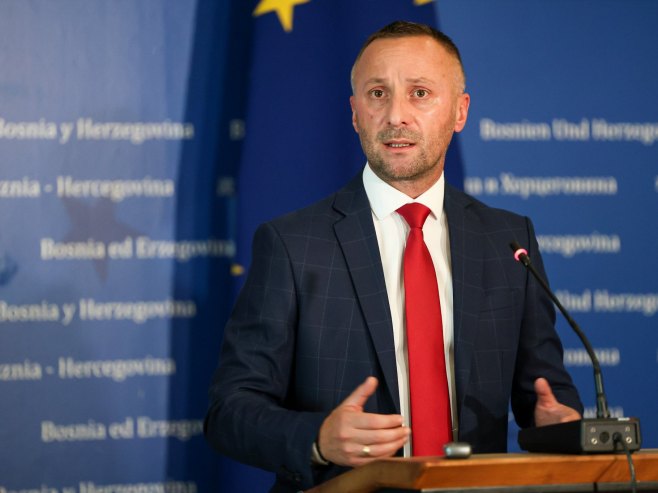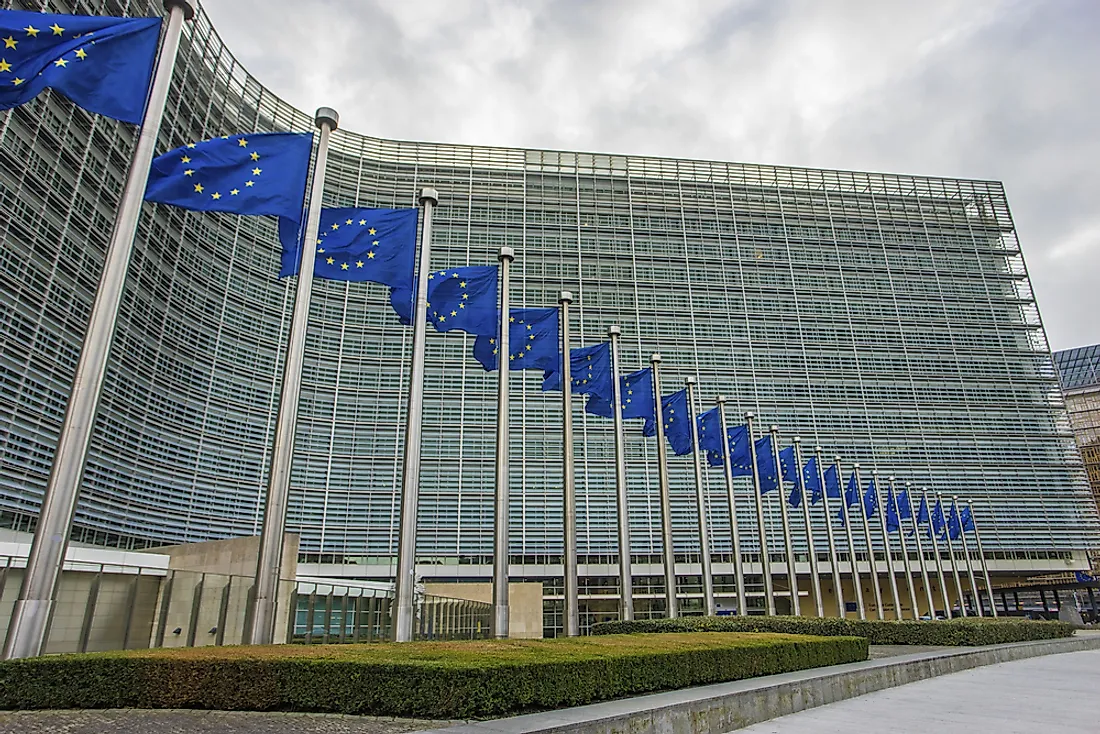Russia supports the further development of Bosnia and Herzegovina (BiH) as a sovereign country based on agreements and compromises, without the imposition of foreign artificial recipes and interference of foreign factors, and is ready to assist in maintaining such an equal dialogue using its rich diplomatic experience, stated the Russian ambassador to BiH, Igor Kalabukhov.
On the occasion of Russia’s Diplomacy Day, celebrated on February 10, Kalabukhov highlighted that diplomacy, as the science of negotiations, is the essence of the functioning of BiH, which implies equality and consensus of the three constituent peoples and two entities, as well as maintaining a balance of their interests, which is not possible without mutual agreement.
“We are currently witnessing a clear lack of compromise, the main cause of which we see in the arrogant behavior of external actors in BiH, primarily Western diplomatic representatives who go beyond the bounds of diplomacy, imposing their own opinion on the peoples of BiH, and the same behavior from the illegitimate high representative,” stated the Russian diplomat.
Reminding that Russia currently maintains diplomatic relations with 190 countries, including 185 UN countries, Kalabukhov said that regular relations with BiH have been established since 1996.
“BiH is inextricably linked to diplomacy, as all spheres of life in BiH and its constitution are regulated by the General Framework Agreement for Peace, for which the Russian Federation is also a guarantor,” Kalabukhov emphasized.
Speaking about the Day of the Diplomatic Worker, the Russian ambassador noted that this day is connected to two key dates in the history of Russian diplomacy.
“The first is February 10, 1549, when the first official body of the Russian Empire for foreign policy during the time of Ivan the Terrible – the Ambassadorial Department, is recorded, while the second is September 8, 1802, when the Ministry of Foreign Affairs of Russia was established. On the occasion of the 200th anniversary of this ministry, Russian President Vladimir Putin proclaimed February 10 as the Day of Russian Diplomacy in 2002,” Kalabukhov mentioned.
Despite these formal dates, he added, Russian diplomacy itself counts many more years and achievements – from the first diplomatic agreement between Russia and Byzantium in 911, after which Russia concluded treaties on relations with more than 40 international subjects within just 50 years, and all the way to 1697, when it joined the so-called “Holy League,” and during the next 200 years, became an indispensable participant in all pan-European diplomatic alliances, including primarily the Congress of Vienna in 1815.
“At the turn of the century, Russia became the initiator and organizer of the first world congress on war and humanitarian law, now known as the Hague Peace Conference of 1899,” the Russian diplomat told Srna.
The outcome of World War II was decided at the trilateral meetings of the USSR, the USA, and Great Britain in Tehran in November 1943, in Yalta in February 1945, and in Potsdam in July-August 1945. “It was the Soviet Union that became one of the founders of the UN organization, signing its Charter on June 26, 1945, as well as the final act of the Conference on Security and Cooperation in Europe in 1975, the precursor to the modern OSCE,” Kalabukhov highlighted.
According to him, the Ministry of Foreign Affairs of the USSR made every effort to maintain the global balance when creating these organizations to prevent any potential conflicts.
“Furthermore, Moscow initiated the adoption of the UN declaration on granting independence to colonial countries and peoples in 1960, enabling independence for 80 former colonies with 750 million people. However, as we see now, most conflicts are precisely instigated by circumventing the UN using the OSCE by the West to promote its own approaches,” Kalabukhov pointed out.
After the dissolution of the Soviet Union, Russian foreign policy entered a new development period when its goals and tasks were publicly formulated in the Foreign Policy Concepts. So far, six such doctrinal documents have been created – in 1993, 2000, 2008, 2013, 2016, and 2023.
“On March 31, 2023, the President of Russia established a new concept, representing a fundamentally new step compared to all previous documents. For the first time, it recognized the reduction of the UN’s role under the pressure of Western countries with neo-colonial ambitions making autonomous decisions. Over 200 years, about 150 countries have been exposed to US interventions, while out of 193 UN member states, only 22 have not been the object of aggression by Great Britain. Russia has declared the necessity, not only of revitalizing the UN system but also of fighting against Western hegemony to create a new, fairer multipolar world order, with increased influence of the world’s majority countries,” said the Russian ambassador.
He emphasized that Russia is currently leading several demanding and challenging diplomatic processes in accordance with the tasks of this concept. “With our participation, the Group of Friends for the Protection of the UN Charter was launched, which has 19 participants and aims to return the UN to its true principles with strict respect for the equality of states,” Kalabukhov highlighted.
He stated that Russia is actively working on security in the digital sphere.
“At Russia’s initiative, from 2019 to 2021, a Group and Committee within the UN were created to develop a comprehensive convention on digital security, which should codify ways of equal contacts and sovereign rights of states in this sphere. However, here too, we face opposition from Western countries, which, based on the outdated Council of Europe convention of 2001, the so-called Budapest Convention, are trying to preserve their exceptionalism and unfounded right to intervene in the digital space of sovereign countries,” the Russian diplomat pointed out.
He said that the Russian Federation ended the last year with numerous diplomatic achievements.
“We actively develop and promote alternative integration associations of the world’s majority, such as the Eurasian Economic Union, the Shanghai Cooperation Organization, and BRICS. This year we have established a declaration on the further development of economic relations in the EAEU until 2030 and the ‘Eurasian Economic Path’ until 2045, signed trade agreements with Iran and Myanmar. We have created a legal framework for the Collective Security Treaty Organization (CSTO) to join the UN structures and fixed the common approaches of the foreign ministers of the CSTO member states to security in space and Eurasia,” Kalabukhov noted.
From January 1, Russia becomes the chairing country in the Commonwealth of Independent States, which includes most of the republics of the former USSR. “At the summit in October 2023, a statement on a multipolar world was adopted, a number of trade agreements were signed, and the International Organization for the Russian Language was established,” he reminded.
According to him, an extraordinary level of relations with China was achieved when trade turnover exceeded 230 billion dollars, while the share of the ruble and yuan reached 80%. “We maintained an intensive political dialogue with India within the framework of New Delhi’s presidency in the SCO and G20 to strengthen the Russian-Indian specially privileged partnership, evidenced by the increase in trade turnover to 54 billion,” Kalabukhov pointed out.
Russia maintains stable relations with the countries of the world majority in several new and traditional formats – in October, regular dialogue of foreign ministers of the Caspian region states was established, in December in Morocco, a new session of the Russian-Arab Cooperation Forum was held. “We actively work in the Group of Strategic Vision ‘Russia-Islamic World’. In July 2023, the second Russia-Africa summit was held with representatives from 49 of 54 African continent countries, while in October, an international parliamentary conference Russia-Latin America was conducted. In July, the first meeting of Russia-China-Indonesia was held, and a statement on the five-year anniversary of Russia’s strategic partnership with ASEAN was adopted,” said the Russian ambassador.
In August 2023, at the Johannesburg BRICS summit, with Russia’s active participation, a historic decision was made to expand the organization’s composition by five new members – Egypt, UAE, Iran, Saudi Arabia, and Ethiopia. “From January, Russia takes over the presidency of BRICS, as an organization uniting 45% of the world’s population and 30% of the land area as well as a third of the global GDP. From January 30 to February 1, the first BRICS meeting was held, considering Russia’s proposal to increase the volume of trade in national currencies of the member countries and adopting the BRICS Economic Development Strategy until 2025,” Kalabukhov noted.
“We promote new multipolar communication formats for the countries of the world majority. In November last year, the Forum of United Cultures was held in St. Petersburg, while this year in June, Russia organizes the first international sports games of BRICS, and in November, the first global music competition will be held with the presentation of the cultural traditions of the countries of the world – ‘Intervision’.
We have established an electronic visa system for citizens of 55 countries, which more than 120,000 people have used in just five months. The quota for free education in Russia for foreign nationals has been increased by 30,000, and 206,000 textbooks have been delivered to educational organizations from 23 countries,” Kalabukhov said on the occasion of Diplomacy Day, highlighting Russia’s rich diplomatic activities.
Surce: RTRS



